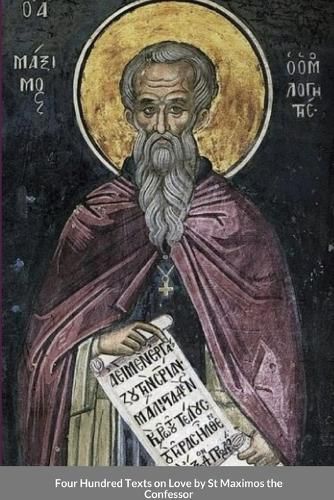Readings Newsletter
Become a Readings Member to make your shopping experience even easier.
Sign in or sign up for free!
You’re not far away from qualifying for FREE standard shipping within Australia
You’ve qualified for FREE standard shipping within Australia
The cart is loading…






This title is printed to order. This book may have been self-published. If so, we cannot guarantee the quality of the content. In the main most books will have gone through the editing process however some may not. We therefore suggest that you be aware of this before ordering this book. If in doubt check either the author or publisher’s details as we are unable to accept any returns unless they are faulty. Please contact us if you have any questions.
Maximus the Confessor (Greek: ??????? ? ??????????), also known as Maximus the Theologian and Maximus of Constantinople (c. 580 - 13 August 662), was a Christian monk, theologian, and scholar. In his early life, Maximus was a civil servant, and an aide to the Byzantine Emperor Heraclius. However, he gave up this life in the political sphere to enter into the monastic life. Maximus had studied diverse schools of philosophy, and certainly what was common for his time, the Platonic dialogues, the works of Aristotle, and numerous later Platonic commentators on Aristotle and Plato, like Plotinus, Porphyry, Iamblichus, and Proclus. When one of his friends began espousing the Christological position known as Monothelitism, Maximus was drawn into the controversy, in which he supported an interpretation of the Chalcedonian formula on the basis of which it was asserted that Jesus had both a human and a divine will. Maximus is venerated in both the Eastern Orthodox and Roman Catholic churches. He was eventually persecuted for his Christological positions; following a trial, his tongue and right hand were mutilated. He was then exiled and died on 13 August 662, in Tsageri in present-day Georgia. However, his theology was upheld by the Third Council of Constantinople and he was venerated as a saint soon after his death.
$9.00 standard shipping within Australia
FREE standard shipping within Australia for orders over $100.00
Express & International shipping calculated at checkout
This title is printed to order. This book may have been self-published. If so, we cannot guarantee the quality of the content. In the main most books will have gone through the editing process however some may not. We therefore suggest that you be aware of this before ordering this book. If in doubt check either the author or publisher’s details as we are unable to accept any returns unless they are faulty. Please contact us if you have any questions.
Maximus the Confessor (Greek: ??????? ? ??????????), also known as Maximus the Theologian and Maximus of Constantinople (c. 580 - 13 August 662), was a Christian monk, theologian, and scholar. In his early life, Maximus was a civil servant, and an aide to the Byzantine Emperor Heraclius. However, he gave up this life in the political sphere to enter into the monastic life. Maximus had studied diverse schools of philosophy, and certainly what was common for his time, the Platonic dialogues, the works of Aristotle, and numerous later Platonic commentators on Aristotle and Plato, like Plotinus, Porphyry, Iamblichus, and Proclus. When one of his friends began espousing the Christological position known as Monothelitism, Maximus was drawn into the controversy, in which he supported an interpretation of the Chalcedonian formula on the basis of which it was asserted that Jesus had both a human and a divine will. Maximus is venerated in both the Eastern Orthodox and Roman Catholic churches. He was eventually persecuted for his Christological positions; following a trial, his tongue and right hand were mutilated. He was then exiled and died on 13 August 662, in Tsageri in present-day Georgia. However, his theology was upheld by the Third Council of Constantinople and he was venerated as a saint soon after his death.